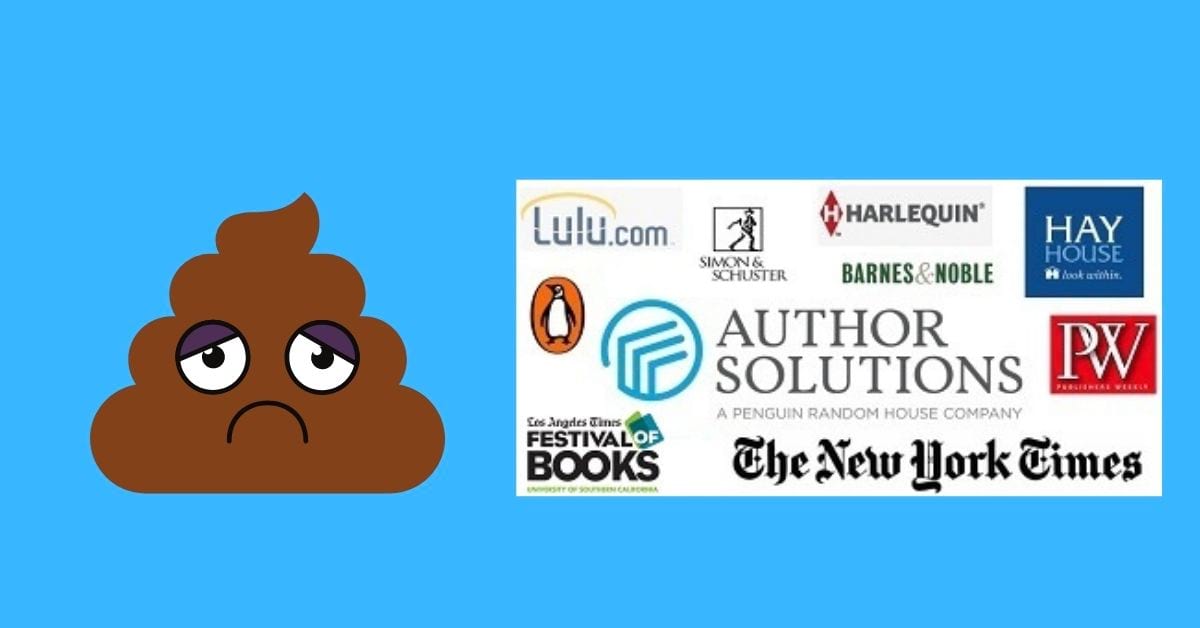Scammers used to operate at the edges of the publishing business, but have wormed their way into its heart. And the entire industry is in denial.
This post is from 9 August 2016. It has not been updated except to clean up broken links but the comments remain open.
An unintentionally revealing aspect of the tiresome Amazon-Hachette dispute was a series of statements from an organization purporting to advocate for authors’ rights. One of the heinous crimes Amazon was said to have committed was treating books like toasters.
With such a claim, Authors United was attempting to tap into a current of feeling about the commoditization of literature – as if Amazon was the first company to put a price tag on a book, and writers around the country were hitherto living off laurels and kudos. It’s tempting to suggest that other entities in the publishing business might be doing as well as Amazon if they also treated books like toasters and attempted to sell the bloody things, but I digress.
What this characterization by Authors United highlighted was that most precious of things: how the industry likes to view itself. Publishing, you see, is far above the rough and tumble of everyday capitalism. Publishers may make profits now and then, but only as an accidental by-product of their true pursuit: the promotion of literature. Without publishers there would be no books; thank heavens that an eagle-eyed intern plucked Beowulf from a slush pile or the world would be very much the poorer.
It’s all bullshit, of course. Publishing is a business just like any other, something which is quite obvious when you look at the companies which now own the publishers. Some in publishing now accept this, while looking back at the so-called golden days with increasing fondness. The days when Bennett Cerf would edit a novel at Random House in the morning and regale America with his urbane witticisms on What’s My Line? in the evening.
But that’s bullshit too. Bennett Cerf’s all-too-willing hagiographers quickly skip over the decade-long episode where he was a central player in the biggest writing scam of the 1960s.
The Famous Writers School was exposed by Jessica Mitford, and she was prompted to investigate them after reading Writing Rackets by Robert Byrne – which was published back in 1969. Byrne’s book details a whole host of tawdry scams and dirty tricks that new writers are subjected to when trying to break into the industry: unscrupulous literary agents with reading fees, fabricated writing contests with exorbitant entry costs, fraudulent vanity presses, horrendously expensive correspondence courses… any of this sound familiar?
Little progress has been made in the last fifty years. Anyone familiar with Writer Beware knows that all of these wheezes are alive and well. However, it’s the differences between today and the sixties which are most illustrative, and disturbing. Scammers used to operate – with a few notable exceptions – at the fringes of the industry.
Today, whole swathes of the publishing business is geared towards shaking down aspiring writers.
Blaming The Vanity Victims
From exploitative vanity presses owned by respectable, mainstream publishers, to writing contests with egregious, grabby terms being run by well-known newspapers, to exploitative book display services being run in conjunction with famous book fairs – none of these practices are at the fringes anymore.
Some of the biggest names in publishing are participating in horrendous schemes which deliberately exploit the inexperience of those entering the industry. And what do established authors do? Shrug, or blame the victim.
We shouldn’t be surprised that inexperienced writers get duped. The scammers are advertising in the New York Times, given glowing coverage in Publishers Weekly, and appear proudly at the London Book Fair.
And instead of working to expose the shady operators, the industry has been legitimizing them, partnering with them, even purchasing them outright so they can cut out any middleman between them and the giant pile of dirty cash.
This is the publishing business.


